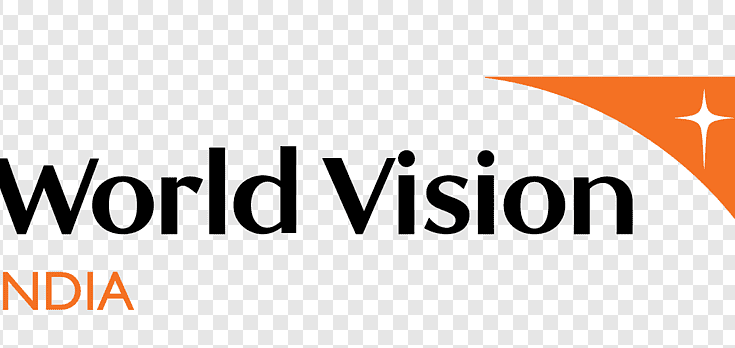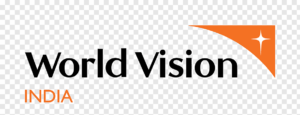World Vision India urgently calls on civil society organisations and leaders
India’s Most Vulnerable Children on the Brink due to COVID-19
Chennai, 14 July 2020 – World Vision India urgently calls on civil society organisations and leaders to attend and respond to the deadly long-term impact of COVID-19 on India’s most vulnerable, especially childre n. Th e Unma sking the Impact of COVID-19 on Asia’s Most Vulnerable Children early recovery assessment report rel eased by World Vision Asia Pacific, reveals that resulting economic, psychosocial, and physical strain on Indian families ha s negatively affected all aspects of child well-being including access to food, nutrition, healthcare, es sential med icines, hygiene and sanitation facilities, as well as child protection and safety.
“People in our communities have become very depressed. No one imagined that we would come to such a state of depression which is forcing children to go to work. A lot of children during this time are involved in child lab our. Th ere are many children who are selling vegetables on the streets. The parents have not been able to go to work and this has affected the economy of the family. Children have become depressed seeing the plight of their parents” says 15-year old Sheetal.
The early recovery assessment report based on data gathered from 5668 households across 119 districts from 24 states and 2 union territories (Delhi and Kashmir) highlighted that the livelihoods of more than 60% of par ents or caregivers were fully or severely affected by the COVID-19 pandemic. The daily workers who are the la rgest seg ment in the survey are the hardest hit. The loss of livelihoods that has resulted from government lock down meas ures has become the top-most concern for the rural and urban poor. About 67% of urban parents/c aregivers have reported the loss of jobs or income reduction in the previous weeks.
Over 385 million children live in extreme poverty across the wo rld. Of these, India is home to 30 percent, the hig hest in South Asia. The impact of COVID-19 is threatening to reverse decades of progress in the fight against p overty and income inequalities, potentially stalling India’s economic growth at zero percent, in 2020, and putting millions of children at increased risk. “Women and children are usually the worst affected in any disaster. The CO VID-19 crisis is proving to be no different. It is causing cascading damage to poor and vulnerable children — thro ugh stretched health services, inadequate medical supplies, higher risk of violence & exploitation, minimal access to education and lower intake of nut ritious food stemming from the severe drop in income levels in fam ilies. The findings in our Recovery Assess ment Report are a timely call to all stakeholders to respond as best as they can to this difficult situation, which may continue for several months, with continued increase in infections in many cou ntries” says Cherian Thomas, Regional Leader, World Vision International, South Asia and Pacific region.
Results of the report reveal that 55.1% of the interviewed households could get only two meals a day, which ind icated limited access to basic food supplies due to affordability challenges. Access to adequate water and sani ta tion remains a challenge, which increases the risk of malnutrition and the spread of the diseases, including COV ID-19. The stress on families related to loss of income, lack of school, change of children’s behaviour and qua ran tine measures contributes to children experiencing physical punishment and emotional abuse. The report also indicates that 40% of children are stressed out due to the current situation.
While the potential longer-term effects on the global economy and individual countries are dire, World Vision India calls on relevant authorities to prioritise the most vulnerable people by providing intense socio-economic and technical support. The report offers short, medium, and long-term recommendations for government, multi-lateral and implementing partners to meet the needs of vulnerable children and protect them from diseases, including all forms of violence.
Note to editor
The Unmasking the Impact of COVID-19 on Asia’s Most Vulnerable Children early recovery assessment analysis, is a compilation of survey data from over 26,000 people in 335 communities across nine Asian countries: Bangl ad esh, Cambodia, India, Indonesia, Mongolia, Myanmar, Nepal, Philippines, Sri Lanka.
Read the full report here: https://www.wvi.org/publications/coronavirus-health-crisis/unmasking-impact-covid-19-asias-most-vulnerable-children
About World Vision India
World Vision is one of the world’s leading child focused humanitarian organisations. Through development, relief and adv ocacy, we pursue fullness of life for every child by serving the poor and oppressed regardless of religion, race, eth nicity or ge nder as a demonstration of God’s unconditional love for all people. With nearly 65 years of experience in India, World Vis ion India works in 140 districts impacting 26 lakh children and their families in over 6200 communities spread across 24 states and 2 Union Territories of India. We work along with children, families and communities to ad dress issues of health, nutrition, water, sanitation & hygiene, education, child protection, climate change, gender, dis ability and huma nitarian emergencies in partnership with governments, civil society, donors and corporates. For more information, go to: https://www.worldvision.in/





